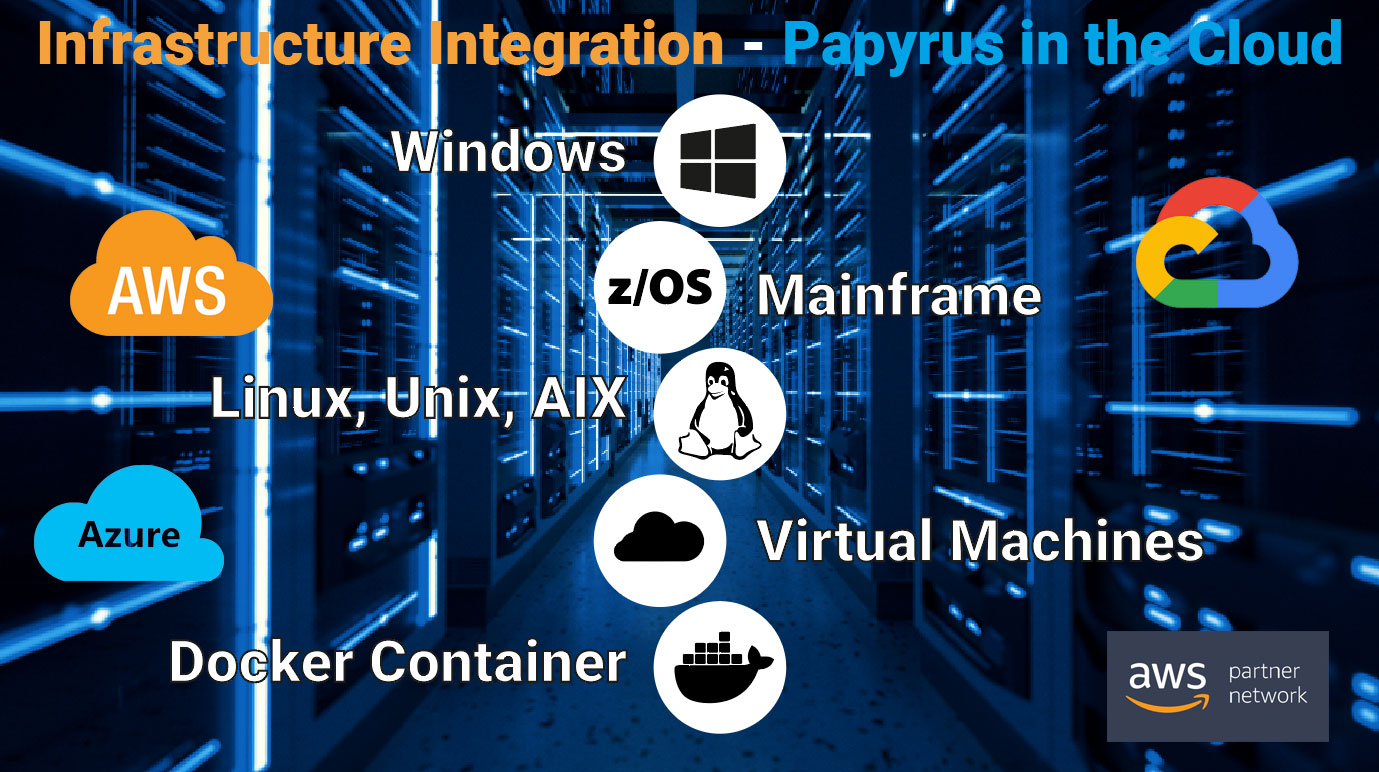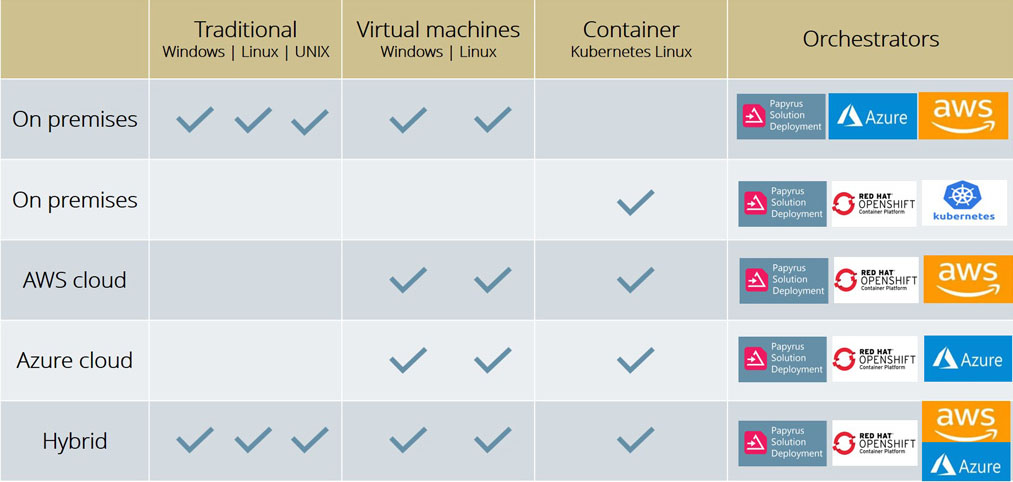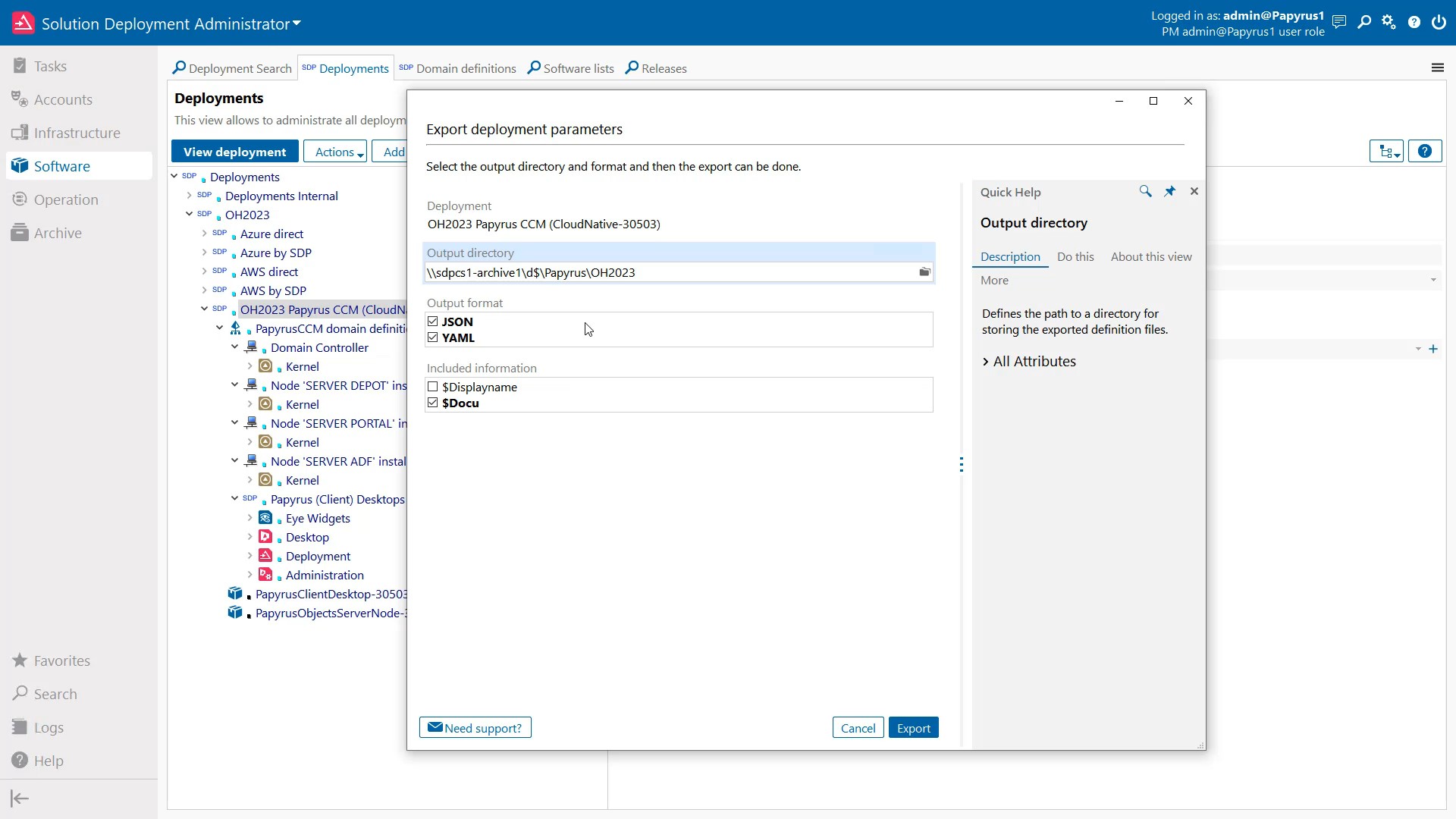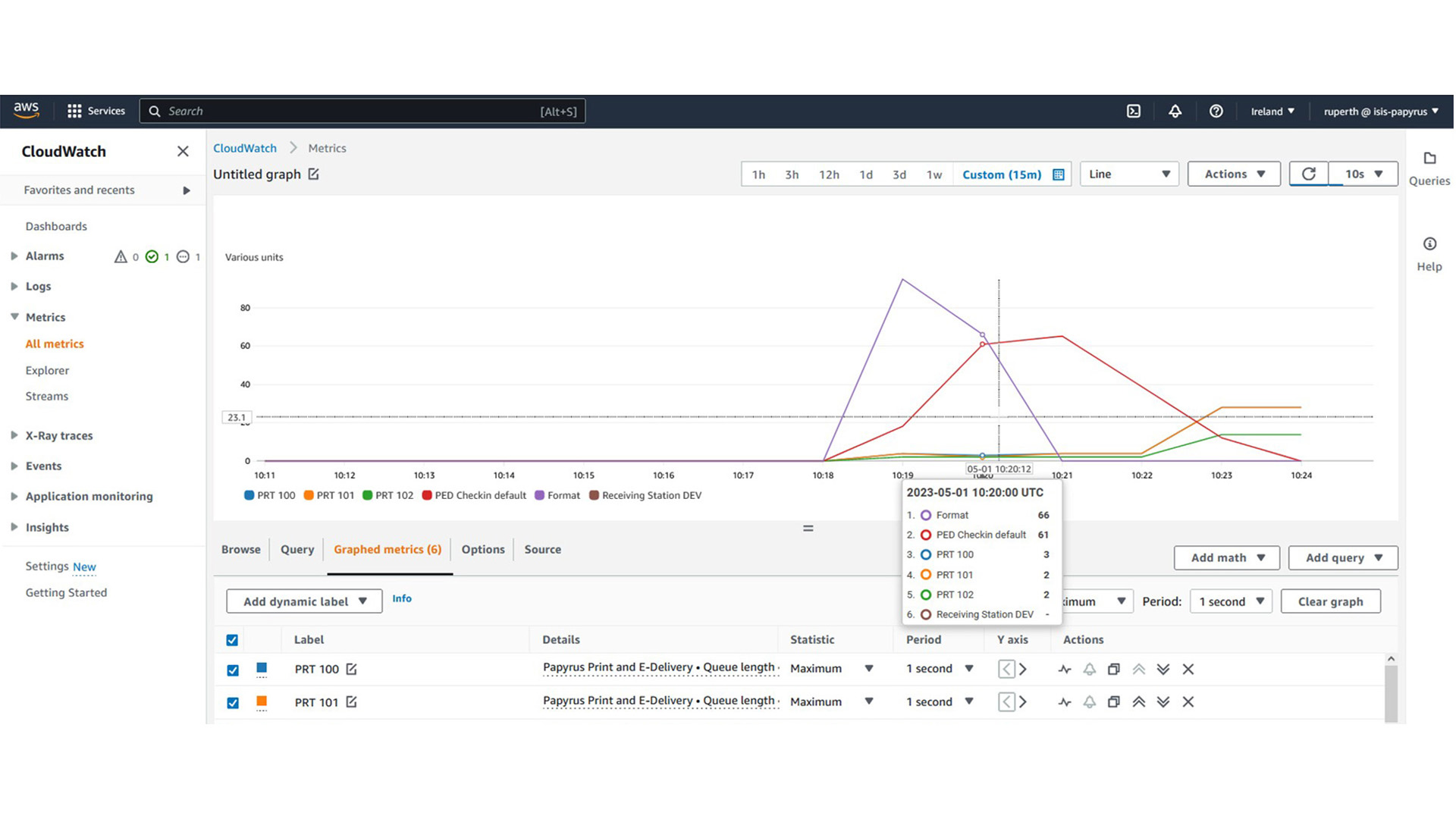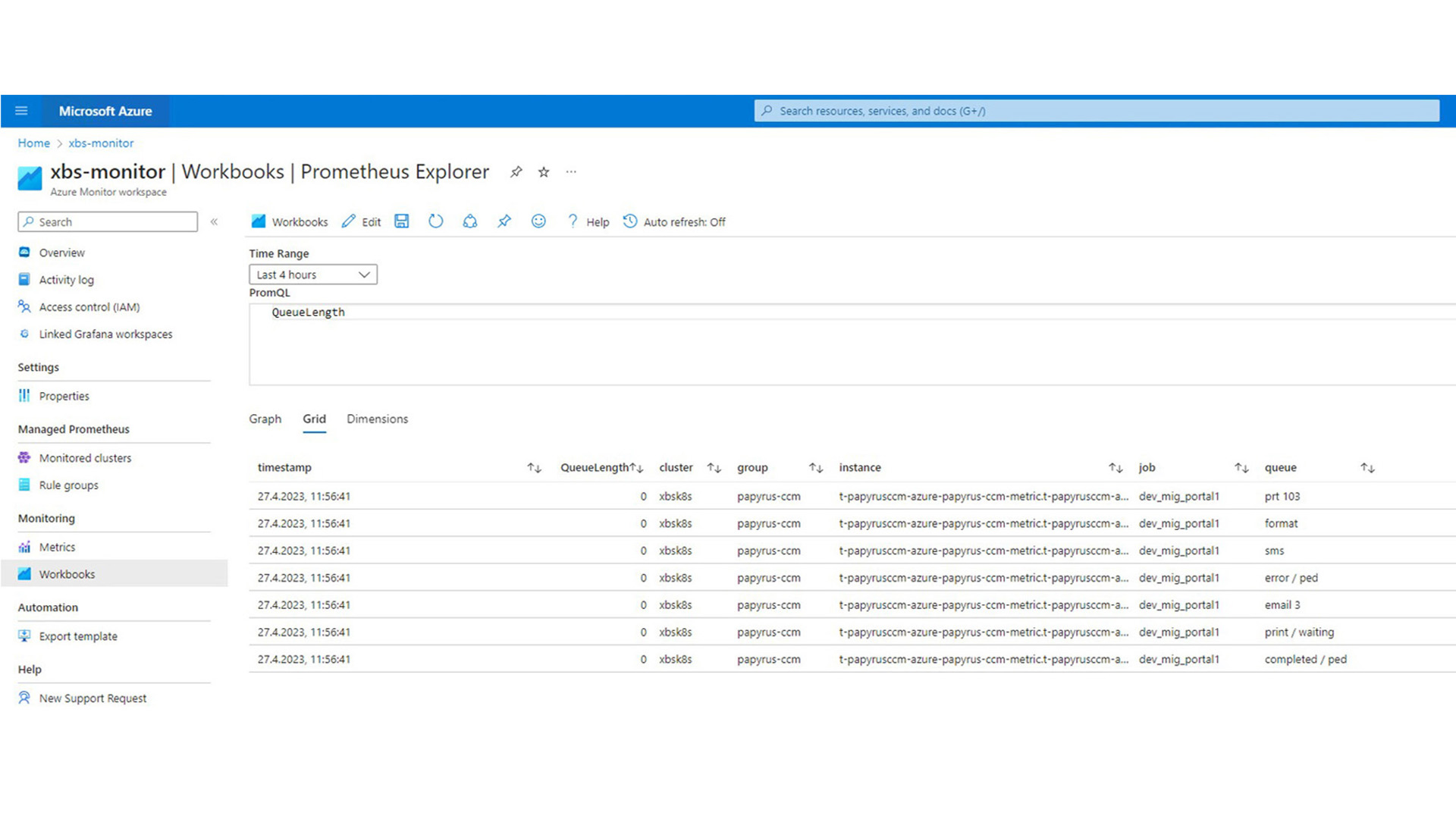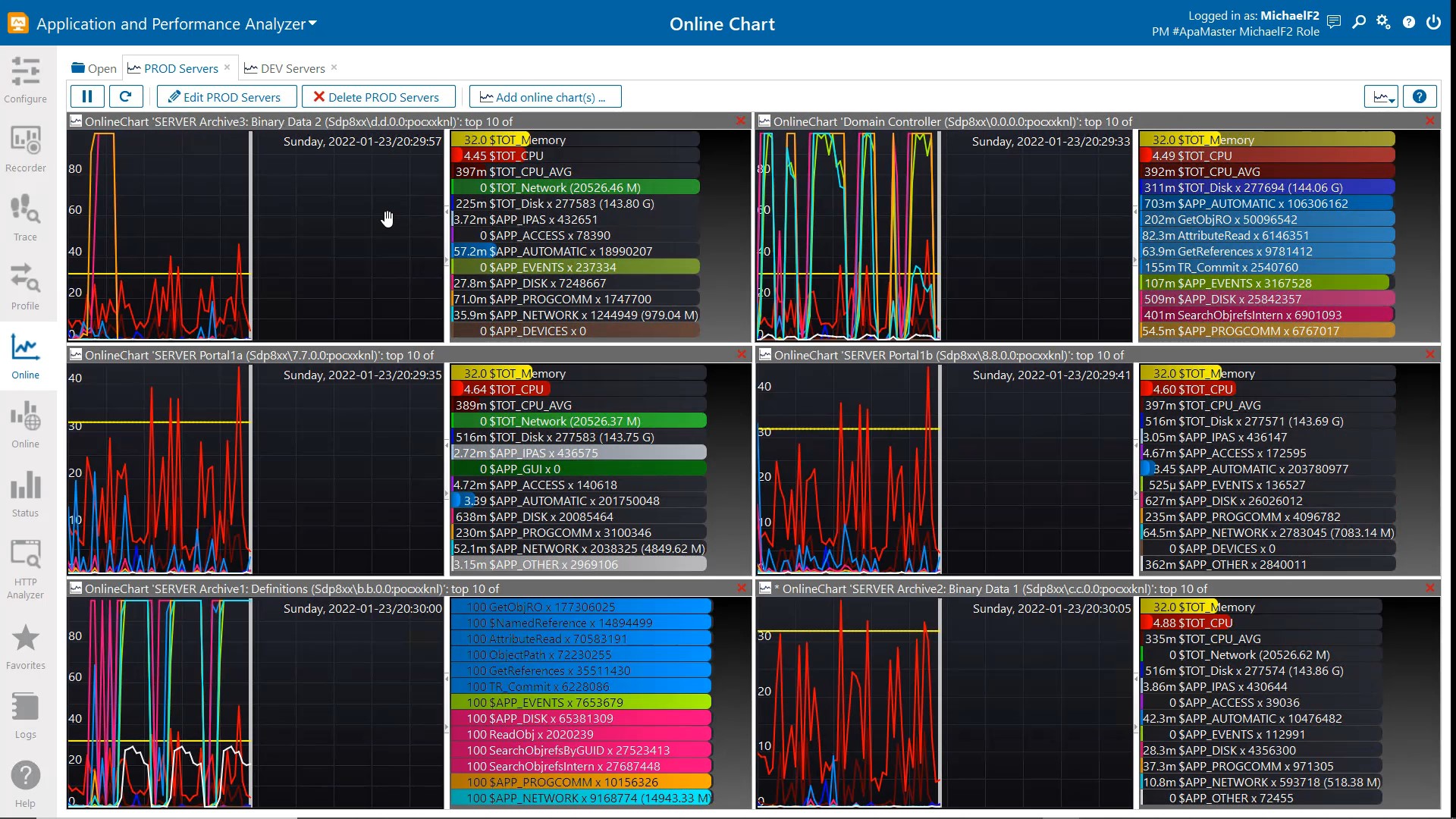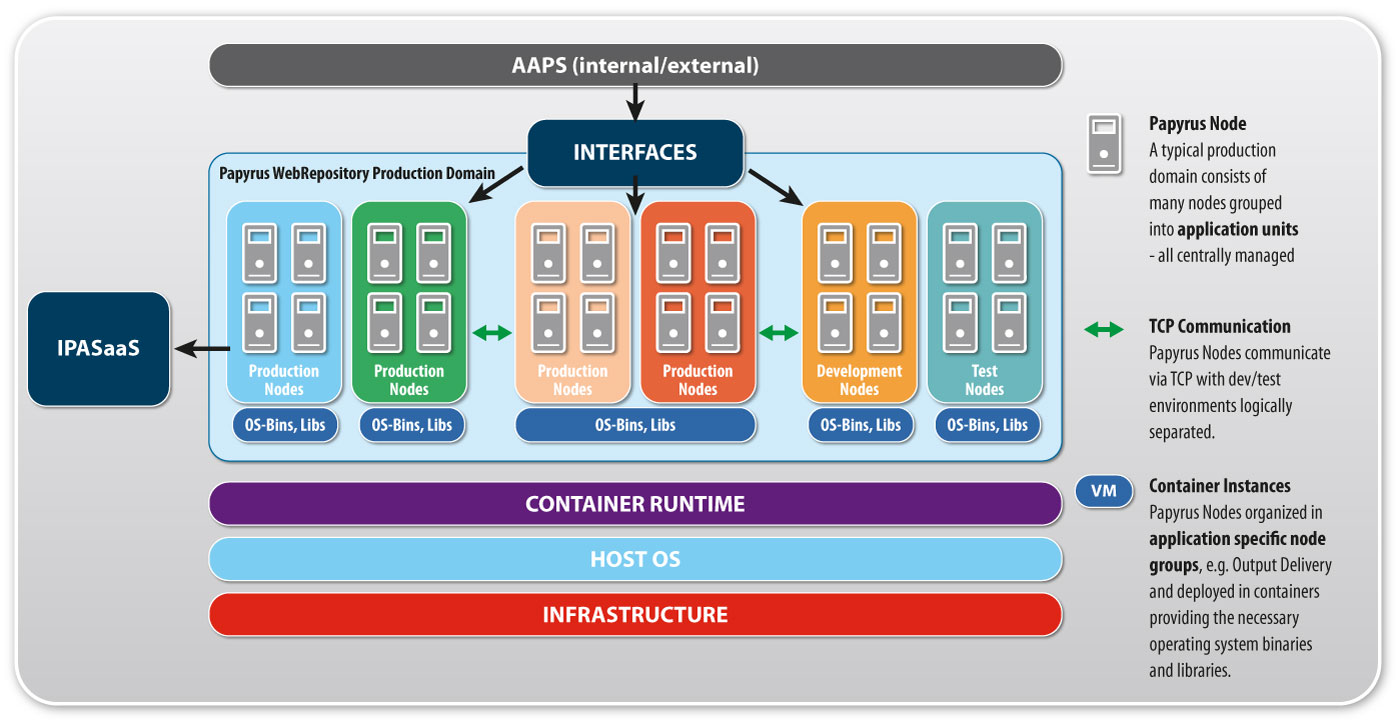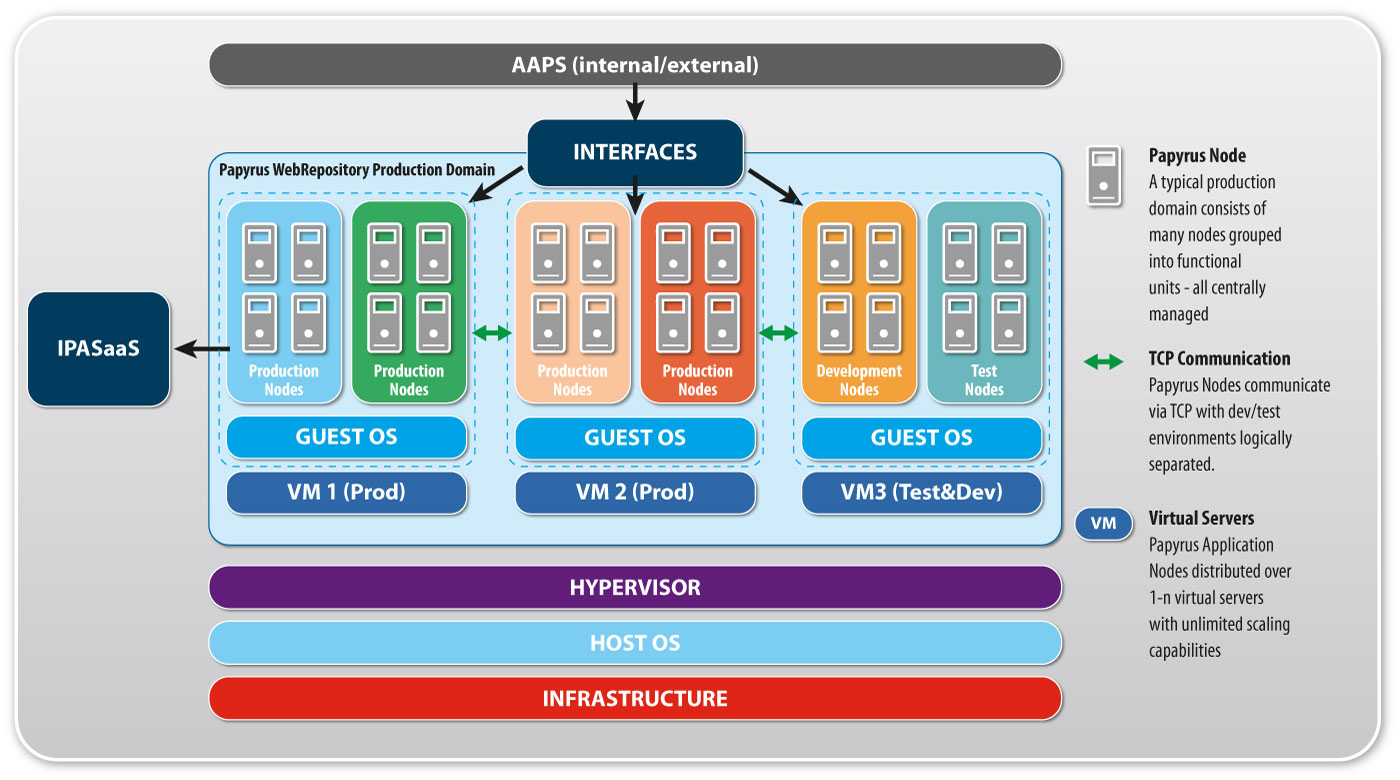Papyrus Platform: Made for the Cloud
Papyrus Platform protects customer investments by providing choice and flexibility in deployment without the need to re-architecture or refactor their Papyrus applications.
Seamless Rehosting
The unique multi-platform and highly scalable Papyrus Node Architecture has always made rehosting (lift & shift) a risk- and pain-free operation for customers. Papyrus runs natively on Z/OS, Unix, AIX, Linux, MS Windows, and virtual servers such as VMWare and AWS AMI or any other Infrastructure as a Service partner infrastructure such as Microsoft Azure, Google Cloud, IBM Cloud, etc.
Papyrus customers can run the Papyrus Platform on hybrid infrastructure, not having hardware and operating system lock-in.
Supported Deployment Variants
Native Cloud
The Papyrus Solution Deployment takes away the burden of writing complex configuration files by generating from the setup the Deployment Configuration files (YAML, JSON) for orchestrators such as Kubernetes, Red Hat OpenShift, and Amazon launch template.
With the Papyrus Solution Deployment we can do the same as such orchestrators. Downloading new versions of the software, distributing the software, start & stop nodes all with the advantage that it can do this over other operating systems such AIX and Unix that are not supported by IaaS vendors.
Papyrus SDP Install, Deploy and Start/Stop
Horizontal auto-scaling is natively supported by the Papyrus Node Architecture. The built-in Papyrus Application & Performance Analyzer monitors in real-time cpu, disk io, memory usage as well queue lengths, duration of tasks, etc., and provides that information to Amazon CloudWatch, Prometheus, and Grafana.
Papyrus Deployed in Containers
When deploying Papyrus nodes into a Container based architecture each container represents software components as a self-contained packages of the application processes - or App Groups. This ensures that the application runs quickly and reliably on one computing environment or another whilst removing dependencies to runtime libraries previously shared between applications. Furthermore, various orchestrator solutions like Kubernetes, RedHat, and OpenShift provide the concept of "pods", which is a logical group of containers belonging together.
Papyrus allows for 1-n nodes to be collected into App Groups and deployed to Containers thus providing scalability at the service/function level whilst removing dependencies to other applications running on the same server and potentially sharing libraries.
App groups/Containers will be custom configured during the project based on the application's requirements
Papyrus Deployed to Virtual Servers
Papyrus software can be used on many different types of server architectures and operating systems.
Papyrus Production, Development and Test environments are deployed onto your virtual servers, collecting application functions together to maximize performance. Your virtual platform must only allow TCP communication between the servers for Papyrus to operate over unlimited VMs.
Once Papyrus is deployed you can take advantage of the various features of virtual servers. For example, quick hardware scaling per virtual server instance is supported by Papyrus automatically. If you increase your server’s CPU and memory capacity temporarily or long term, Papyrus will automatically use more system resources to speed up your production. Hardware usage can be configured as limited or unlimited even at individual component levels to ensure you route the additional resources to the features prioritized by your business.
Designed to enable the enterprise to implement distributed object-oriented business solutions, the Papyrus Platform is a distributed system of objects (peer-to-peer architecture) in which all nodes (computers in a network) may use the same objects residing on the domain controller or any other nodes.
Papyrus software modules run functionally transparent on all supported versions of Windows, AIX, HP-UX, Sun Solaris, Linux and the IBM mainframe (z/OS, z/Linux, USS) as well as on virtualization platforms such as VMware, ESX Server, Citrix and Amazon Cloud.

